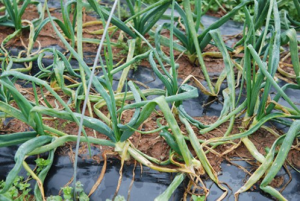Over the last 15 years we have talked about third party audits to verify your food safety plan. Now you are hearing about inspections.
What is the difference?
Audits
Audits are voluntary evaluations that growers are doing at the request of their buyers. Some growers may not think that audits are voluntary since some growers have been told if they did not have one, a specific buyer would not purchase their produce. That is true, but you still had the choice to sell to someone else if you did not want to go through the audit process. The audit was verifying what you said you were doing for food safety.
Inspections
The Food Safety Modernization Act (FSMA) has added the inspection component to food safety. The final FSMA rule went into effect January 2016. As FSMA is implemented over the next two to four years, growers will hear more about inspections and how it may impact their operations. The Food and Drug Administration (FDA) now has more authority for fresh produce which adds another layer of compliance for growers. Inspections will be done by a government entity with specific requirements and implies some type of enforcement in the future. FDA is not in any hurry to start an enforcement program. They have made it clear that education is the first priority, but in reality sometime in the future there will be enforcement. Who will do the inspections is still being decided between FDA and the different states. In New Jersey, the New Jersey Department of Agriculture will probably be the lead agency as it relates to farms and on farm packinghouses.
Coping with New Rules: On-Farm Readiness Review
There is a group of extension personnel from Florida, Michigan, New Jersey and North Carolina working with the National Association State Departments of Agriculture on a grant from the FDA to develop an On Farm Readiness Review. This will be a self-assessment tool for growers, extension personnel and inspectors to help everyone when a farm is inspected. The plan is to have the final version available next year.
Growers will receive training over the next year to help comply with the Produce Rule in FSMA. The good news is growers who have been through a third party audit already meet or exceed most requirements for FSMA. Water testing is the one area where there are differences, but the training will help clarify those differences.

